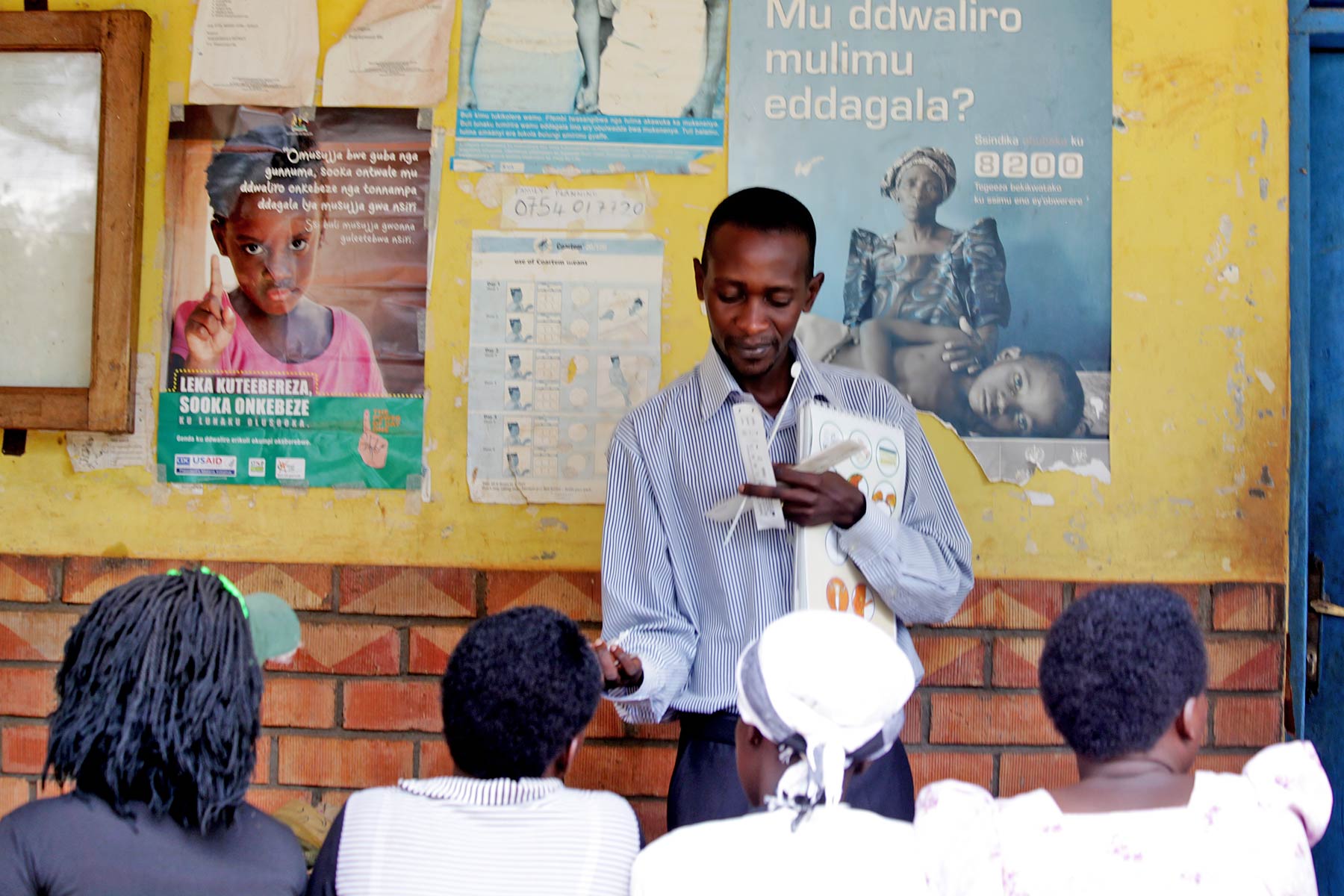Pastor Kainerugaba is a born again Christian. He lives in Naskasongola, Uganda, a district in the central part of the country. Pastor Kainerugaba is not just a pastor, however. He devotes much of his time away from his church to educating his community about the benefits of family planning. When a Marie Stopes International (MSI) project was operating in his village, the pastor worked as a village health trainer (VHT) with MSI’s social franchise brand, BlueStar Healthcare Network. In this capacity, Pastor Kainerugaba held weekly sensitization sessions during immunization days at health facilities for over 50 women, worked with Marie Stopes Uganda (MSU) outreach teams and, when it was requested, administered injectable contraceptives. Pastor Kainerugaba also helped to clarify misconceptions about contraception methods and side effects during behavior change conversations with community members. On top of all this work to educate his community members directly, Pastor Kainerugaba also served as a VHT sub-coordinator, which means he trained other VHTs in the Kakooge sub-county of Naskasongola.
While it may seem odd for a man of the cloth to be so involved in family planning service delivery, this sort of engagement in family planning by religious leaders should be the norm, not the exception, Pastor Kainerugaba says.
“Religious leaders everywhere should help their people access family planning information and services that lead to their stability and development. If a home is not stable, the church will not be stable. Church starts in a home and if people are not happy in their homes, even our churches will not be happy.”

Faith or maybe more accurately—organized religion—has long been cited as a reason not to access family planning services. (Here’s a nice cheat sheet on many major religions’ beliefs around contraception and abortion.) Natural family planning methods (Lactational Amenorrhea Method, Cervical Mucus Method, etc.) are long-accepted by faith-based organizations, but modern methods of contraceptives are still often considered taboo. (It should also be noted that many methods of natural family planning, including fertility awareness methods are less effective than modern methods.)
As is illustrated by Pastor Kainerugaba’s story above, partnerships like the one between faith communities and my placement organization, Marie Stopes International, this attitude is changing in some faith communities. MSI works with faith leaders to educate communities about family planning services—including access to services, the benefits of family planning and to dispel myths about various methods of contraceptives. These faith leaders are trusted members of their communities, and their partnership with MSI means that community members receive accurate information from a source they trust.
“People respect me as a religious leader and listen to what I say,” explains Pastor Kainerugaba. “Since they trust me and the information I use, I use that opportunity to talk to them about family planning and other health related issues so they can live healthy lives. When they are healthy, they are even in a better position to come to church which would not have been possible if they were not.”
Recently, with funding from the United Nations Foundation, MSI hired national photographers to document the work we do with the faith community in Mali, Uganda, Yemen and Tanzania. In my role as the MSI-US Communications Specialist, I had the honor of compiling these beautiful photos, along with quotes from religious leaders, into a new website which we unveiled in December. Please visit this site to see first-hand the work we’re doing to start a discussion about faith and family planning, and to see what I’ve been working on during my fellowship.
